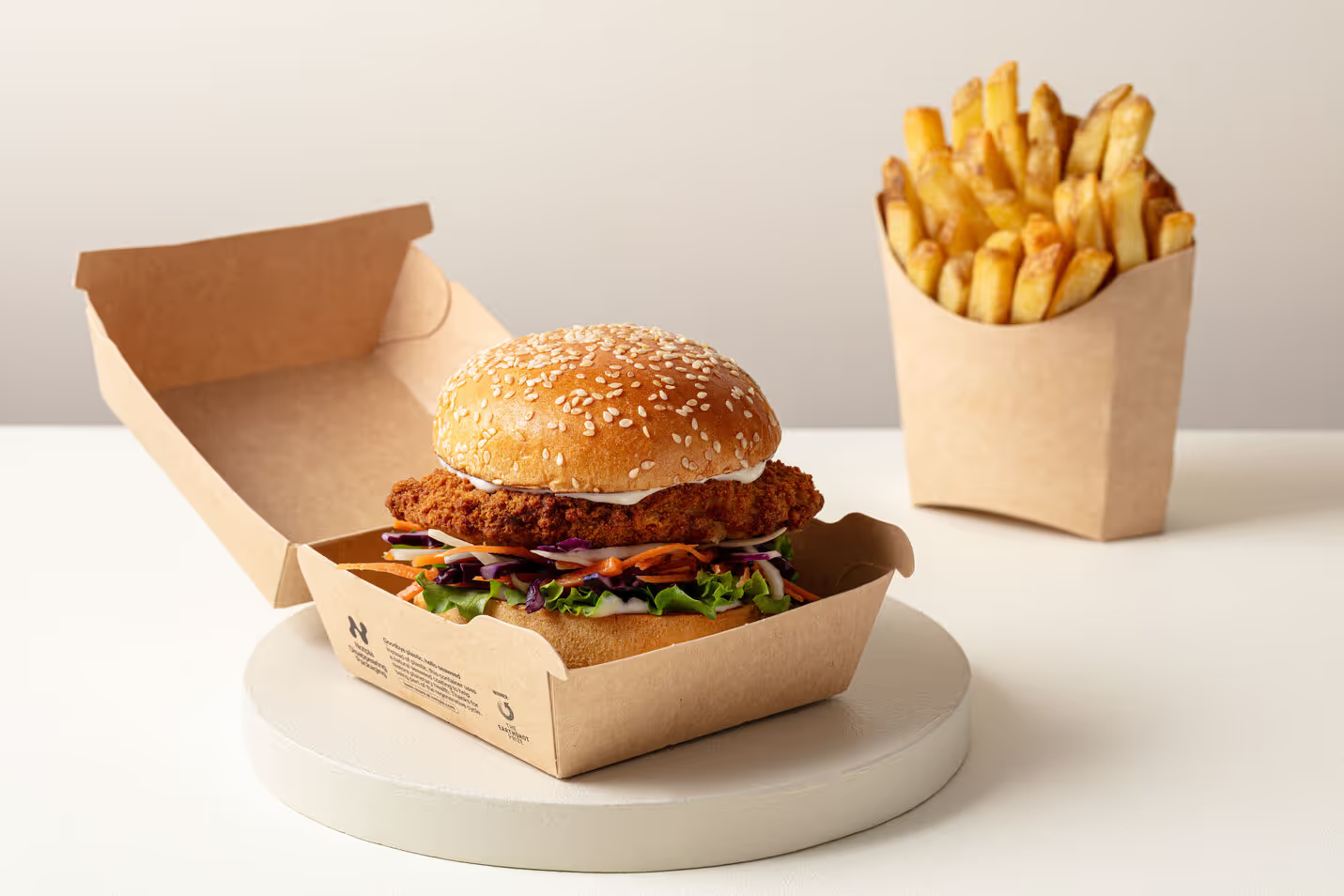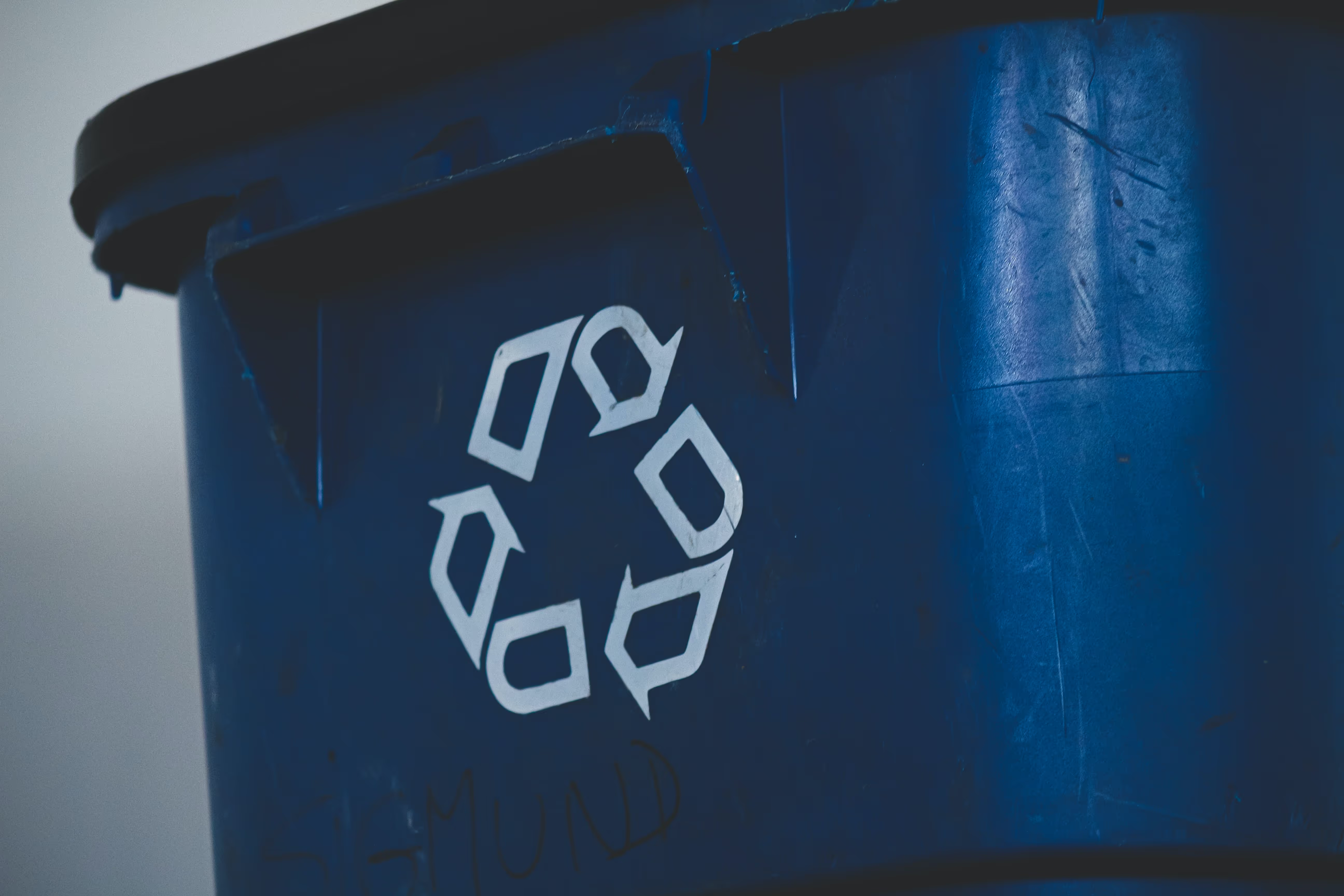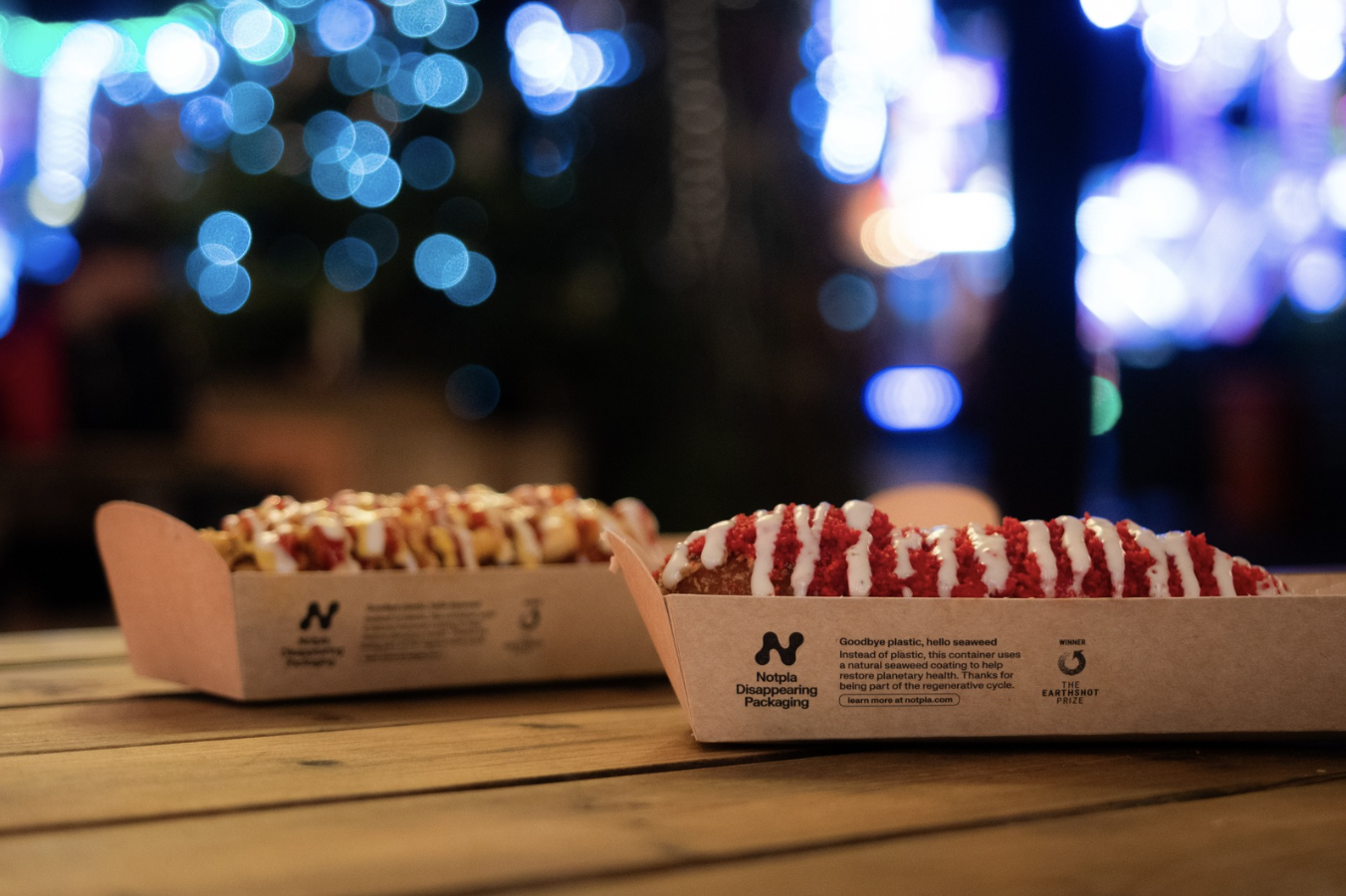
Let's break down the PPWR rules, when they take effect, and how Notpla's seaweed-based solutions can help you stay ahead of the curve.
The PPWR is reshaping how we think about packaging entirely:
All packaging must be recyclable by 2030
PFAS and Bisphenol A ban by 2026
Stricter compostability standards by 2026
Single-use plastic bans from 2030
Refill and reuse targets
The writing's on the wall: recyclable, compostable, and reusable solutions are becoming the industry standard.

Here's when these changes will affect your business:
2026 - PFAS and Bisphenol A banned in food contact packaging
2028 - Compostable packaging becomes mandatory for:
2030 - All packaging must be recyclable
2035 - Packaging must be recycled at scale, with material recovery targets kicking in
Now's the time to start rethinking your packaging strategy—not when the deadlines are looming.
Meeting the PPWR standards means businesses need to:
At Notpla, we've always believed in better packaging for a better planet and now regulation is catching up with what nature already knows. Our seaweed-based solutions already meet or exceed the PPWR standards:
Recyclable packaging that works with nature
Home-compostable by design
PFAS-free from day one
Ready-made solutions for the HORECA sector
-min.avif)
The PPWR isn't just a new regulation - it's an invitation to reimagine how we package and protect what matters. By switching to Notpla's seaweed-based packaging, you're joining a movement to make packaging that works with nature, not against it.
Want to learn how Notpla can help your business navigate the changing regulatory landscape? Let's talk. Our team is ready to help you find the perfect sustainable solution for your needs.
%20(1).avif) From student idea to sustainable solution: Earthshot Prize-winner Notpla returns to Imperial College London
From student idea to sustainable solution: Earthshot Prize-winner Notpla returns to Imperial College London How Peppermint and Notpla redefined sustainability at Winter Wonderland
How Peppermint and Notpla redefined sustainability at Winter Wonderland.avif) Wembley Stadium partners with Notpla and Delaware North to advance sustainable packaging in live music
Wembley Stadium partners with Notpla and Delaware North to advance sustainable packaging in live music